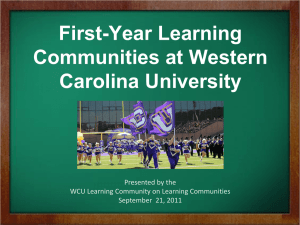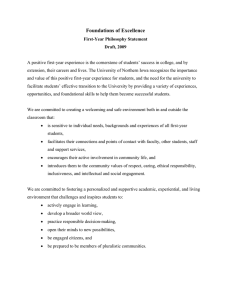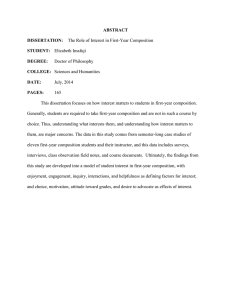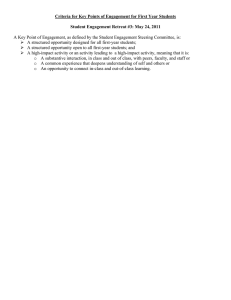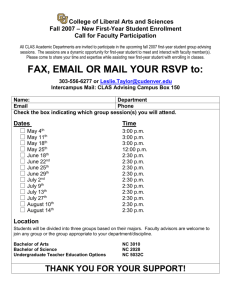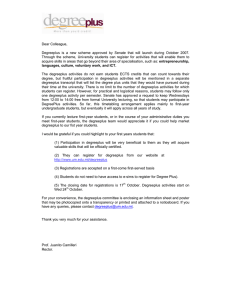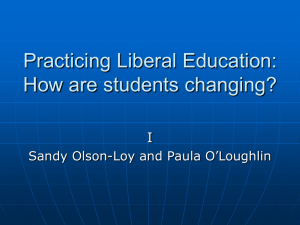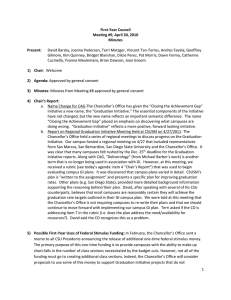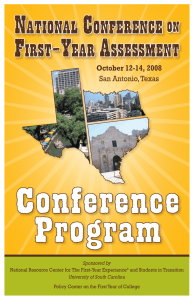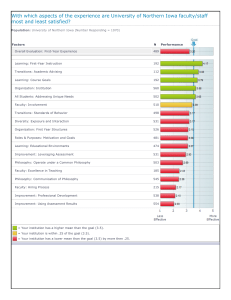Academic and Student Preparedness
advertisement
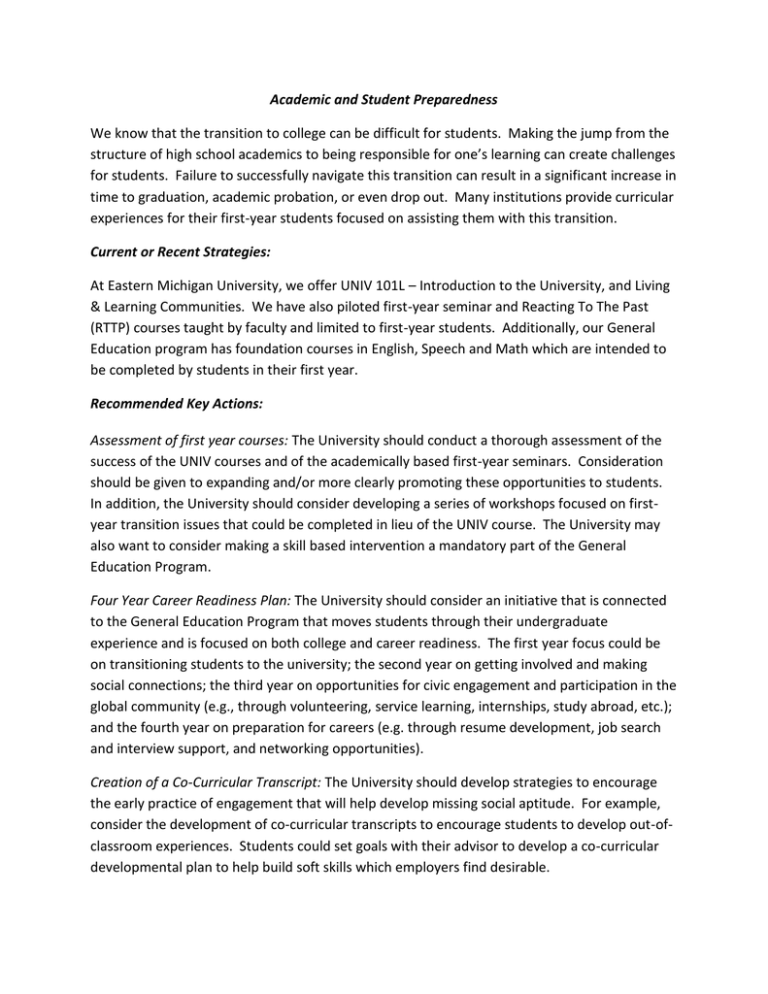
Academic and Student Preparedness We know that the transition to college can be difficult for students. Making the jump from the structure of high school academics to being responsible for one’s learning can create challenges for students. Failure to successfully navigate this transition can result in a significant increase in time to graduation, academic probation, or even drop out. Many institutions provide curricular experiences for their first-year students focused on assisting them with this transition. Current or Recent Strategies: At Eastern Michigan University, we offer UNIV 101L – Introduction to the University, and Living & Learning Communities. We have also piloted first-year seminar and Reacting To The Past (RTTP) courses taught by faculty and limited to first-year students. Additionally, our General Education program has foundation courses in English, Speech and Math which are intended to be completed by students in their first year. Recommended Key Actions: Assessment of first year courses: The University should conduct a thorough assessment of the success of the UNIV courses and of the academically based first-year seminars. Consideration should be given to expanding and/or more clearly promoting these opportunities to students. In addition, the University should consider developing a series of workshops focused on firstyear transition issues that could be completed in lieu of the UNIV course. The University may also want to consider making a skill based intervention a mandatory part of the General Education Program. Four Year Career Readiness Plan: The University should consider an initiative that is connected to the General Education Program that moves students through their undergraduate experience and is focused on both college and career readiness. The first year focus could be on transitioning students to the university; the second year on getting involved and making social connections; the third year on opportunities for civic engagement and participation in the global community (e.g., through volunteering, service learning, internships, study abroad, etc.); and the fourth year on preparation for careers (e.g. through resume development, job search and interview support, and networking opportunities). Creation of a Co-Curricular Transcript: The University should develop strategies to encourage the early practice of engagement that will help develop missing social aptitude. For example, consider the development of co-curricular transcripts to encourage students to develop out-ofclassroom experiences. Students could set goals with their advisor to develop a co-curricular developmental plan to help build soft skills which employers find desirable. We also know that students are entering college underprepared in Math and English. This is something that colleges and universities are struggling with on a national level. Students and graduates need strong analytical and writing skills to be successful in college and in their careers. Recommended Key Action: Review of need for development math and writing courses: Complete a comprehensive review of institutional data (NSSE, CIRP, ACT, GPA, etc.) to get a clear picture of the situation/needs. The university should consider providing opportunities for incoming students to take developmental math courses and/or ENGL 120 prior to enrolling in their first full semester of course work. This will provide students with an opportunity to prepare in advance for the General Education requirements in these areas. In addition, we know the seeds for student success at EMU are planted once a student is accepted into the university and then decides to enroll. The communication and activities leading up to students’ first semester can set the tone for their college experience. Recommended Key Action: Communication of university-wide messages: The University should evaluate the current series of communications and orientation programs (Fast Track and First Four) to assess if and how they should be changed. Are our messages clear and sufficiently reinforced through all communications and programs? The University should assess how we are helping students and their families understand and navigate the intricacies of attending college.
